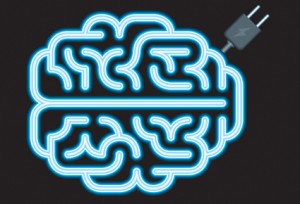Do We Have Enough Energy to Control Ourselves?
Monday, May 21st, 2012With a mountain of behavior-based health problems, ethical concerns and spending problems that answer is no!
 There are lots of demands on our time but even more demands on our mental energy. Watching, thinking, learning, deciding, stressing and controlling our own emotions, impulses and behavior all take a tremendous amount of mental energy. As we start to run out of mental energy our cognitive performance and willpower begin to slip. If our supply of mental energy runs too low our attempts to stick to our goals, resist impulses, manage biases when making decisions, learn deeply and other attempts at conscious self-regulation fail.
There are lots of demands on our time but even more demands on our mental energy. Watching, thinking, learning, deciding, stressing and controlling our own emotions, impulses and behavior all take a tremendous amount of mental energy. As we start to run out of mental energy our cognitive performance and willpower begin to slip. If our supply of mental energy runs too low our attempts to stick to our goals, resist impulses, manage biases when making decisions, learn deeply and other attempts at conscious self-regulation fail.
Mental energy is a limited resource.
Mental energy appears to be more than biological energy and brain sugar. There are subjective components including a sense of vigor and motivation. This means our attempt to manage mental energy should include both psychological and biological interventions. This point is illustrated well in a recent post of the science of willpower blog that look at temptations that actually boost our willpower. The temptations include psychological tactics such as watching others pursue goals (e.g. reality TV) or a humorous or cute video as well as biological tactics including naps, snacks and caffeine.
From a cognitive design standpoint these are great tactics because they can be integrated easily into daily life, are science-based and avoid the paradox of using willpower to build willpower (we naturally want to do them).
Interestingly, the science behind some of these claims (those focused on glucose) have recently come into question. For example, researchers at the University of Pennsylvania claim that the Brain’s Willpower is not Fueled by Glucose. This might signal a larger role for psychological tactics or even a powerful placebo effect.
Understanding the nature of mental energy and how to manage it through scripted interactions and experience is of central concern to cognitive design. How else can we create effective behavior change, learning and innovation programs? At the very least we want designs that avoid wasting mental energy and in fact seek designs that maximize mental energy on both a biological and psychological basis.
I am interested to hear from readers about what you do to keep your mental batteries charge on a daily basis. What advice do you have for creating, maintaining or otherwise managing mental energy?
Source of Image: Futurity